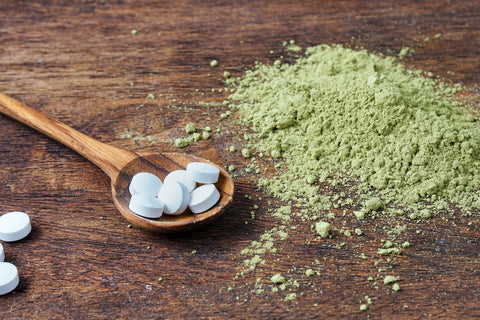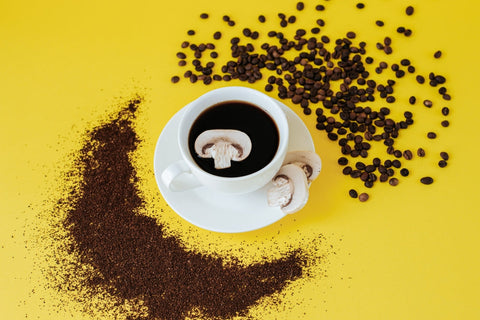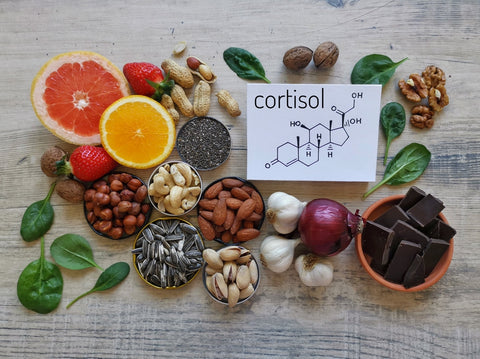Have you ever wished for a magic potion that could make you smarter or help you focus better? Welcome to the world of nootropics, also known as "cognitive enhancers" or "smart drugs." These substances are becoming more popular as people look for ways to boost mental performance in our fast-paced world. Let's dive into what nootropics are all about and explore their fascinating journey from prescription drugs to over-the-counter options.
What Are Nootropics?
Nootropics are substances that some people claim can improve brain functions like memory, concentration, and clarity. They can be found in scary-sounding prescription medications or as harmless as the caffeine in your morning coffee (source, source, source). But are these claims true? Let’s explore the types of nootropics and what they might offer.
Different Types of Nootropics
Not all nootropics are the same. They come in plenty of shapes and forms. Here’s a quick look at the different kinds you might encounter:
Prescription Nootropics
These are nootropics that doctors can prescribe, often for people who have specific medical conditions. For instance:
- Modafinil (Provigil): Used by people with narcolepsy to stay awake during the day.
-
Adderall: A combination of amphetamines used for attention-deficit/
hyperactivity disorder (ADHD). - Methylphenidate (Ritalin): Often used for ADHD and narcolepsy.
- Memantine (Namenda): Prescribed for symptoms of Alzheimer’s disease source.
Nonprescription and Over-the-Counter Nootropics
These are the kinds of nootropics you don’t need a doctor’s note to buy, including:
- Caffeine: Yes, that’s right! The caffeine in your coffee is a nootropic.
- Creatine: Known to many as a supplement for bodybuilders, it also has alleged cognitive benefits.
- Various herbal extracts, vitamins, and proprietary blends promise to boost brainpower (source, source, source).
Some functional mushrooms such as Lion’s Mane and Cordyceps are popular in nootropic supplements and beverages, offering unique cognitive and energy perks.
What Do Nootropics Claim to Do?
Many people take nootropics hoping for a range of cognitive benefits:
- Memory Improvement: They say these can aid in remembering things better and faster.
- Increased Mental Energy: The promise of helping brains work harder and longer.
- Sharpened Attention: Enhancing focus and concentration so you can ignore distractions.
- Improved Learning: Making it easier to grasp new concepts and ideas.
- Better Mood and Well-Being: Helping with stress and motivation, which indirectly aids cognitive function (source, source).
Natural options like ashwagandha are gaining attention for their effects on stress reduction and cognitive clarity.
Who Uses Nootropics and Why?
Nootropics appeal to a wide-ranging audience:
- Students and Professionals: Looking for an edge in focus and productivity.
- Seniors: Aiming to keep their memory sharp and their minds agile.
- Individuals with Medical Conditions: Such as those with ADHD, Alzheimer’s, or narcolepsy, who might find great benefit in prescription nootropics (source, source).
Athletes and highly active individuals may also use mushroom-based nootropics like Cordyceps for a mental and physical boost.
What Does Science Say About Effectiveness and Safety?
Are Nootropics Effective?
- Prescription Nootropics: The research is clear when they’re prescribed for specific medical reasons. They can work wonders for the conditions they’re meant to treat.
- Over-the-Counter and Supplements: The science here is murkier. Some studies show benefits, but many don’t, and rigorous, well-controlled trials are generally lacking (source, source, source).
Curious about getting benefits from your nootropic beverages? Learn how brewing techniques can maximize the nutritional and functional compounds in drinks like mushroom coffee.
Are Nootropics Safe?
- Prescription Nootropics: Like any medication, they come with risks, such as potential addiction, sleep issues, and heart problems.
- Nonprescription and Supplements: Misuse can lead to unwanted health issues like cognitive decline or even dependence. Plus, many haven’t been tested by any official regulatory bodies like the FDA, leading to questions about their efficacy and safety (source, source, source).
It's always wise to weigh both the pros and cons before adding any trendy new nootropic or functional coffee to your wellness routine.
Quick Look: Key Types of Nootropics
Here's a handy summary to keep in mind when navigating the world of nootropics:
| Category | Examples | Use Cases | Risks |
|---|---|---|---|
| Prescription Drugs | Modafinil, Adderall, Ritalin | ADHD, narcolepsy, Alzheimer’s | Addiction, legal control, side effects |
| Over-the-Counter/Supplements | Caffeine, creatine, herbal | General cognitive support | Limited evidence, unregulated |
| Dietary/Natural | Bacopa, L-theanine, ginkgo | Cognitive enhancement | Mild and under-researched |
Conclusion: The Nootropic Journey
The world of nootropics is as varied as it is fascinating. While prescription options for specific medical needs show strong benefits, the rest of the offerings require caution and more scientific investigation to separate fact from hype. Remember, just because something promises a boost doesn't mean it delivers one, or that it’s safe to try without knowing more.
As we wrap up our exploration of nootropics, it's clear that these "smart drugs" need a discerning eye to evaluate what’s truly effective. But the quest for improved thinking, better memory, and greater focus marches on, fueled by both curiosity and the hope that something out there really can help our brains be the best they can be.
It's a thrilling time in the world of cognitive enhancement, and nootropics are a significant part of that ongoing story. Stay tuned as science continues to uncover the mysteries of these fascinating agents!


